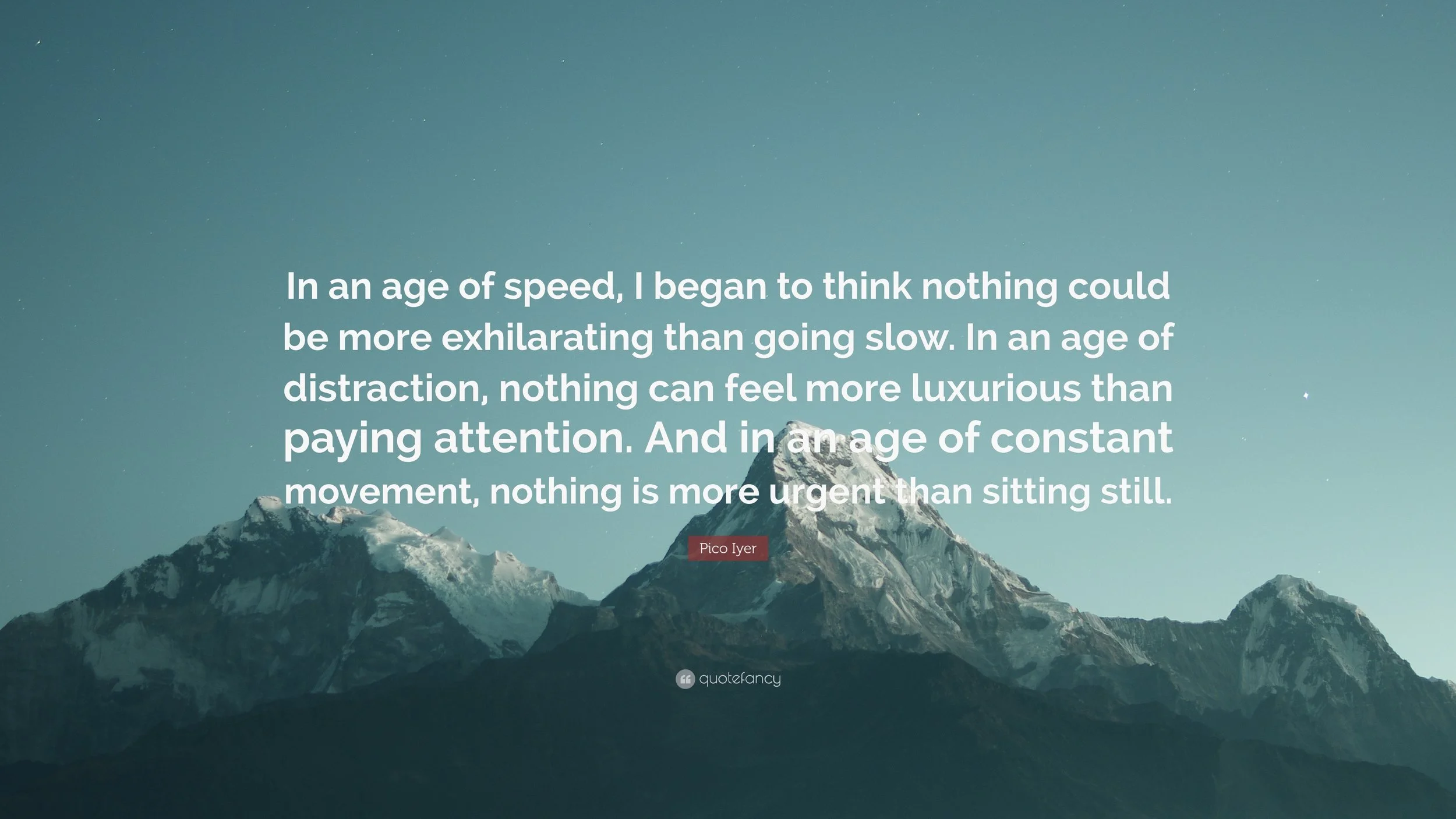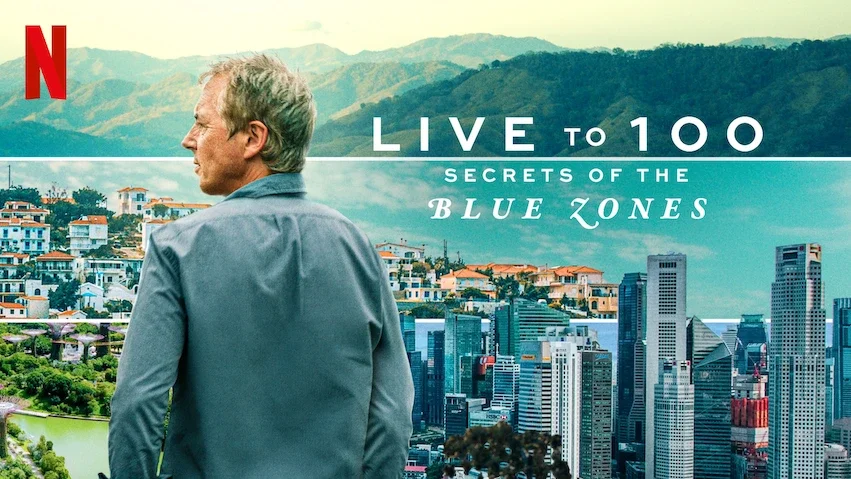Busy Kingdom
It all begins with an idea.
“Don’t get so busy making a living that you forget to make a life.”
— Dolly Parton
I used to be obsessed with productivity, Notion templates, Silicon Valley gurus and LinkedIn carousel hacks. I had the illusion, the more I optimised my time, the more free time I would have to do the things I love. It got to the point where I started “productivising” and “optimising” my weekends and evenings. I was ticking boxes and filling my time with activities to make the most of my existence on Earth. It became an unhealthy habit, and life felt more like I was chasing little wins and achievements rather than genuine contentment and a sense of presence.
I always had the impression that being busy was being productive. Every time I had a meeting with someone and asked, “How’s your week been?”, the answer would always be the same: busy, just very busy. But people’s faces gave the impression that looked more like “I’m at breaking point” rather than “I’m achieving so much and I love it.”So, why does this happen? Why is everyone so busy all of the time, everywhere, all at once?
Glorifying The Busy
According to the Harris Poll, 85% of American workers say “America has a culture that glorifies being busy.” Pausing, it seems, means we’re lazy. Slowing down means we’re falling behind. And, if we are not constantly chasing our goals, we are not ambitious enough. Many people would rather eat their lunch glued to their screens rather than go for a walk or have a chat with some colleagues about the latest episode of Severance (how ironic!).
Somewhere along the way, we began to believe that if we’re not constantly doing, producing, or making a profit, we are unworthy. It’s as if our value has become tied to our output, as though doing is more important than simply being. Writer and illustrator Emily McDowell disagrees with this: “You are not your job, your achievements, or your productivity. You are a human being, not a human doing.” And I think she is completely right, productivity and busyness don’t define who we are.
These mechanics are not our fault. We’ve grown up in a system that rewards speed and efficiency, one that ties human worth to productivity. A society where progress is often measured in numbers rather than lived experience.
Big corporations benefit from selling our data and keeping us distracted, buying things we don’t need, rather than being conscious of the decisions we make. Who doesn’t love a Temu spin-the-wheel prize?
As essayist Pico Iyer said, “In an age of distraction, nothing can feel more luxurious than paying attention.” Distraction is our default mode. Big corporations profit from our distraction. So when someone chooses to slow down and truly pay attention to a person, a moment or a thought, it feels almost like a revolutionary act.
This revolutionary act feels like a quiet longing for something deeper, a more meaningful way of living that values creativity, connection, and joy over distracted busyness. A lifestyle that slows down and invites us to be present, notice the simple things, and remember what really matters.
The Rise of Slow Living
This is what some call slow living, a mindset or lifestyle that focuses on quality and intention over immediacy and quantity. When I talk about slow living, I don’t mean the polished, cottage-core aesthetic that feels like a 50s lifestyle magazine. I also don’t mean quitting your job and escaping to the mountains, as many of us don’t have that kind of privilege or flexibility. I mean a way of being that invites you to pause, imagine, play, and appreciate the little things that very often go unnoticed.
Slowing down gives your nervous system a chance to breathe and opens space for those tiny, moments of delight, the ones that remind you you’re alive. As a creative, slow living helps you connect with your mind, being open to new stimuli and create from a place of calm rather than digital chaos.
Dan Buettner explores slow living in the Netflix documentary series ‘The Blue Zones: Live to 100 – Secrets of the World’s Longest-Lived People.’ He sets out on a journey to five regions around the world where people live longer, healthier, and more fulfilling lives than anywhere else.
Throughout his research, he uncovers the lifestyle habits that contribute to their longevity. Some of the common threads he found were movement (stay active through daily habits), purpose (a reason to wake up), rest (regular stress-reduction rituals), diet (mindful eating), and connection (prioritising being part of a community). If you haven’t watched it, you definitely should.
It is clear that we exceed from living a slow, intentional life. The more we care for our mental and physical health, the more we will feel fulfilled and at peace. At the end of the day, paying attention to our body, mind, and soul is one of the many things that make us uniquely human.
We also need people and connection. As human beings, we have an innate need to belong and bond with others. Surrounding ourselves with our people and spending quality time together helps us feel connected and supported. Or as Brené Brown beautifully puts it “Connection is why we’re here; it’s what gives purpose and meaning to our lives.”
By saying all of this, I’m not saying we should quit productivity, but rather redefine it, rethink it, reframe it. Turn quantity into quality and switch distraction into presence. Reclaim your attention, build some boundaries around your time and focus on the things that bring pockets of meaning into your life. Sound simple, but it’s tricky, I know.
The MINDFUL Framework
That’s why I’ve started to explore different ways to refocus on what productivity means to me. As part of my creative coaching practice, I’ve been developing a framework which will take you from squishing every single minute of your calendar to taking a step back and being more MINDFUL. In the following framework, I’ve included small practices that might help you stay present, grounded, and aligned with what really matters to you:
M — Manage your energy, not just your time
Instead of filling every moment, focus on what truly deserves your attention. Protect your energy, it’s your most valuable resource. Ask yourself: Is this going to energise or drain me?
I — Immerse yourself in the present moment
Be here, now. Notice the light, the colours, the sounds, the way your body feels. Life expands when you stop rushing through it.
N — Nurture connection with yourself and others
Take time to ask what you need and listen to yourself. Call an old friend or connect with someone in your commute and get deep into conversations beyond work.
D — Disconnect to reconnect
When you allow yourself to unplug and slow down, your mind and body make space for clarity, focus, and creativity. Rest = Fuel
F — Follow your curiosity and create
Make things, not for money, but for joy. Paint, write, cook, plant, build, whatever helps you express yourself. Focus on the process over the end product.
U — Uncover inspiration in the everyday
Find inspiration on a street corner, someone you see on the bus, a quiet moment, a shared laugh. Paying attention to the most mundane things can spark unique ideas for your next project.
L — Live with intention
Whether it’s how you start your morning, approach your work, or interact with others, let it come from awareness instead of habit. Before saying yes, ask: Does this align with the life I’m building?
When life slips into autopilot, take it as a signal. Pause, review these steps, and gently reset your default. With simple, supportive frameworks, I help clients move from automatic to a more meaningful, sustainable rhythm, where your time and decisions are yours, and your creative life aligns with your values.
If you’re feeling stuck and ready for a kinder, more intentional, more joyful way of living, you can book a free 30-minute call here.



